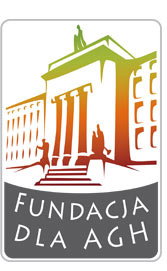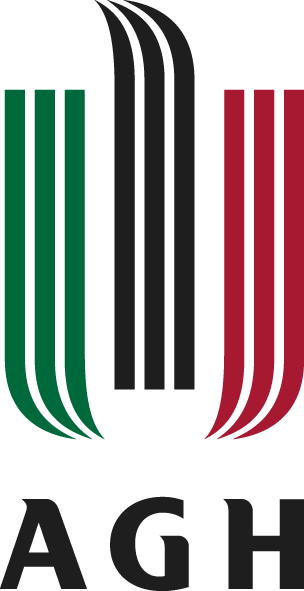Table of Contents
DERIS Workshop
International Workshop on
Design, Evaluation and Refinement of Intelligent Systems (DERIS)
AGH University of Science and Technology
Krakow, Poland, November 28, 2009
http://home.agh.edu.pl/gjn/deris
Co-located with
7th Conference on Computer Methods and Systems
AGH University of Science and Technology
Krakow, Poland, November 26-27, 2009
http://www.cms.agh.edu.pl/
Background
Evaluation, Verification, Validation and Refinement of Intelligent systems, have been an important issue from the very beginning of their applications. These issues were an important research area and engineering aspect in 80' and 90'. Number of conceptual approaches as well as practical tools were developed then.
With time the focus of research in the design of intelligent systems moved away from these topics, towards knowledge representation and processing, the Semantic Web technologies, and number of AI-inspired areas. However, recently number of researches have realized that the lack of systematic methods and formal techniques for the design, evaluation and refinement is often an important reasons for limited applications of even mature intelligent systems. Therefore, there is a growing need to return to some of the basic issues in this field.
Today, in fact, the classic approach to the Evaluation, Verification, Validation and Refinement have to be assessed from the new perspectives. The practical design issues are of prime importance. The integration of Intelligent Systems with mainstream technologies and design approaches from Software Engineering is especially important. The quality issues need to be considered as early as possible during the Design phase of the system.
Aims and Scope
The goal of the workshop is to rebuild the community interested in topics of Evaluation, Verification, Validation and Refinement, as well as attract new researchers to the field.
The objective is to focus on the contributions in the above fields and to provide an environment for communicating different paradigms and approaches, thus hopefully stimulating future cooperation and synergistic activities.
Topics of Interest
Topics of interest are mainly located in the area of Evaluation, Verification, Validation and Refinement and include but are not limited to:
- Principles in knowledge systems and ontology design
- Detecting and handling inconsistencies and other anomalies within knowledge bases
- Fundamentals and formal methods for verification of AI systems
- Fundamentals and formal methods and techniques of validity assessment of AI systems, AI principles, and intelligent behavior in general
- Special approaches to verify and/or validate certain kinds of AI systems: rule-based, case-based,
- Special approaches or tools to evaluate systems of a particular application field
- Knowledge base refinement by using the results of evaluation
- Development and evaluation of ontologies
- Maintenance and evolution of knowledge systems and ontologies
- Methods for the evaluation of distributed knowledge bases
- Evaluation of semi-formal knowledge bases
- Problems in system certification
- Ontology and knowledge capture
- Evaluation of Semantic Web applications
- Formal methods in Verification and Evaluation of Intelligent Systems
Intended Audience
We expect researchers and practitioners from the areas of knowledge and software evaluation, verification, validation, and refinement. No limitation on the number of participants is planned.
Submission Details
Authors are expected to initially submit extended abstracts, or draft versions of papers. The submitted works will be reviewed by at least two members of the program committee. The goal of the reviewing process is mainly providing comments and to suggest improvement.
Papers should be formatted according to the Springer LNCS guidelines. The length of each paper should not exceed 12 pages for regular papers and 6 pages for short, or work in progress papers (including figures and references), see: ftp.springer.de/pub/tex/latex/llncs/latex2e/llncs2e.zip All papers must be written in English and submitted in PDF format with the A4 paper size explicitly set in LaTeX. Submissions will be made via EasyChair: http://www.easychair.org/conferences/?conf=deris2009
Publication
The papers will be published as a technical report of the AGH UST before the workshop, as well as online as CEUR proceedings http://ceur-ws.org after the event, edited by the workshop chairs.
A Journal Special Issue of selected and revised papers of two subsequent DERIS workshops is planned in 2010.
Important dates
- Extended Abstract submission : September 14, 2009
- Notification of paper acceptance: October 3, 2009
- Camera ready copy submission: November 9, 2009
- The Workshop: November 28, 2009
Organization
The one-day workshop will be held with presentations of accepted papers. A comfortable time slot for discussion of all papers will be given.
The workshop will take place at the AGH UST, building D6, room 201. (see the map)
A workshop fee to cover coffee break, lunch and printed proceedings is 25EUR.
The organizational framework is provided by Foundation for AGH

Accepted Papers
Regular Papers
- Martin Atzmueller, Fabian Haupt, Stephanie Beer and Frank Puppe. Knowta: Wiki-enabled Social Tagging for Collaborative Knowledge and Experience Management
- Joachim Baumeister and Grzegorz J. Nalepa. Engineering Expressive Knowledge with Semantic Wikis
- Slawomir Nowaczyk. Experiences in Applying Artificial Intelligence within SIARAS Project
- Jun Fujima, Imke Hoppe and Klaus Jantke. Evaluation Needs of Webble Technologies in an E-Learning Laboratory Case Study
- Adrian Giurca. Can Rule-Based Mashups play a role in the Cloud?
- Agata Ligęza, Grzegorz J. Nalepa and Antoni Ligeza. Proposal of a Graph-Oriented Approach to Verification of XTT2 Rule Bases
Short Papers
- Martin Atzmueller, Florian Lemmerich, Jochen Reutelshoefer and Frank Puppe. Wiki-Enabled Semantic Data Mining - Task Design, Evaluation and Refinement
- Klaus Jantke. The Patterns Experience Evaluation Program PEEP
Schedule
Draft schedule:
- 9:30 - 11:00 workshop, 2 papers
- Jun Fujima, Imke Hoppe and Klaus Jantke. Evaluation Needs of Webble Technologies in an E-Learning Laboratory Case Study
- Klaus Jantke. The Patterns Experience Evaluation Program PEEP
- 11:00 - 11:30 coffee break
- 11:30 - 13:30 workshop, 3 papers
- Joachim Baumeister and Grzegorz J. Nalepa. Engineering Expressive Knowledge with Semantic Wikis
- Martin Atzmueller, Fabian Haupt, Stephanie Beer and Frank Puppe. Knowta: Wiki-enabled Social Tagging for Collaborative Knowledge and Experience Management
- Martin Atzmueller, Florian Lemmerich, Jochen Reutelshoefer and Frank Puppe. Wiki-Enabled Semantic Data Mining - Task Design, Evaluation and Refinement
- 13:30 - 14:00 lunch
- 14:00 - 16:00 workshop, 3 papers
Adrian Giurca. Can Rule-Based Mashups play a role in the Cloud?- Slawomir Nowaczyk. Experiences in Applying Artificial Intelligence within SIARAS Project
- Agata Ligęza, Grzegorz J. Nalepa and Antoni Ligeza. Proposal of a Graph-Oriented Approach to Verification of XTT2 Rule Bases
Workshop Chairs
A. Ligęza, AGH UST Krakow ligeza@agh.edu.pl
G. J. Nalepa, AGH UST Krakow gjn@agh.edu.pl
Program Committee
(tentative)
M. Atzmüller, University of Würzburg, Germany
J. Baumeister, University Würzburg, Germany
K. P. Jantke, Fraunhofer IDMT, Germany
R. Knauf, TU Ilmenau, Germany
A. Ligęza, AGH UST Krakow, Poland
G. J. Nalepa, AGH UST, Krakow, Poland
M. L. Owoc, Wroclaw University of Economics, Poland
S. Spreeuwenberg, LibRT B.V., Amsterdam, The Netherlands
D. H. Sleeman, University of Aberdeen, United Kingdom
